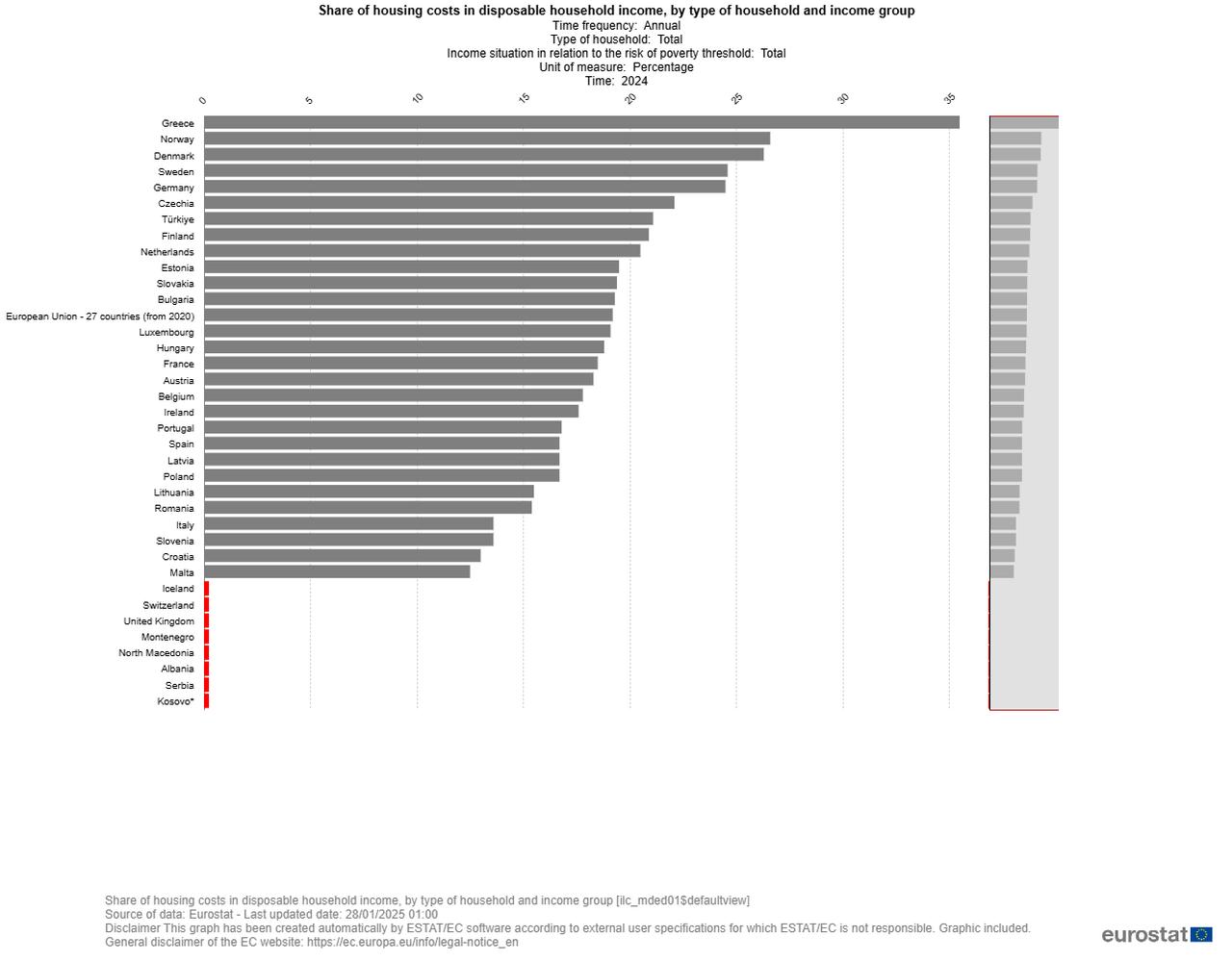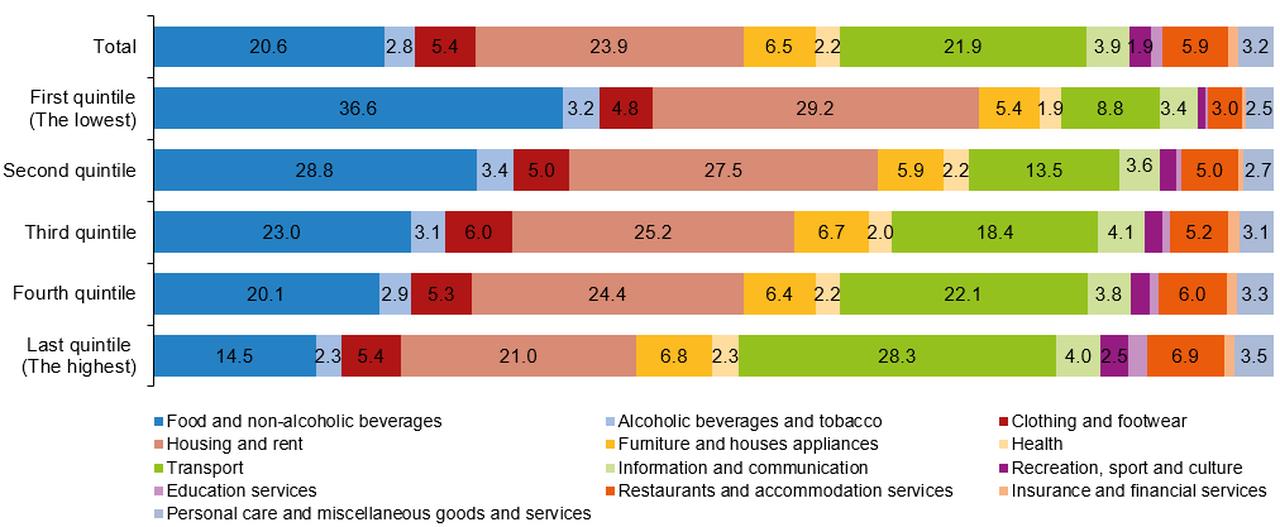
Housing-related expenses—including rent and utility bills—now account for 21.1% of household disposable income in Türkiye, making it the country with the fifth-highest housing cost burden among the 25 European nations surveyed, ranking just behind Denmark, Sweden, Germany, and the Czech Republic, according to Eurostat.
The latest data published by the statistical office of the European Union shows that Türkiye’s housing burden has increased consistently over recent years. In 2017 and 2018, housing expenses accounted for just 18.2% of household disposable income—the lowest rate recorded in the past decade.
Since then, the figure has climbed by nearly 3 percentage points, driven by rising rental prices, increased utility costs, and stagnating real income.
Disposable income refers to the amount households have left after taxes and mandatory deductions, which is typically used to cover essential costs such as housing, food, and transportation.
Denmark tops the list, with households spending 26.6% of their disposable income on housing. It is followed by Sweden at 24.6%, Germany at 24.5%, and the Czech Republic at 22.1%.
Türkiye, at 21.1%, ranks fifth, placing it ahead of several high-income economies, including Finland (20.9%), the Netherlands (20.5%), and France (18.5%).

Further down the list, mid-tier countries such as Estonia (19.5%), Slovakia (19.4%), and Bulgaria (19.3%) show moderate levels of housing-related expenses.
At the lower end, households in Italy and Slovenia spend 13.6% of their income on housing, while Croatia has the lowest share at 13.0%.
Housing is considered a non-discretionary expense, meaning it cannot be easily reduced even when household income comes under strain. As the cost of maintaining housing continues to grow, many Turkish families are left with limited resources for other essential or developmental needs such as education, healthcare, or long-term savings.
Türkiye’s national statistics agency, TurkStat, supports this view, as its 2023 data shows that housing and rent accounted for the largest share of household consumption at 23.9%, surpassing transportation at 21.9% and food at 20.6%. In contrast, spending on education remained at just 1%, while combined expenditures on culture, entertainment, and sports stood at only 1.9%.

A year earlier, in 2022, food had held the largest share at 22.8%, followed by housing at 22.4%.
The shift in just one year illustrates how rapidly housing has overtaken other categories to become the dominant expenditure for Turkish households.